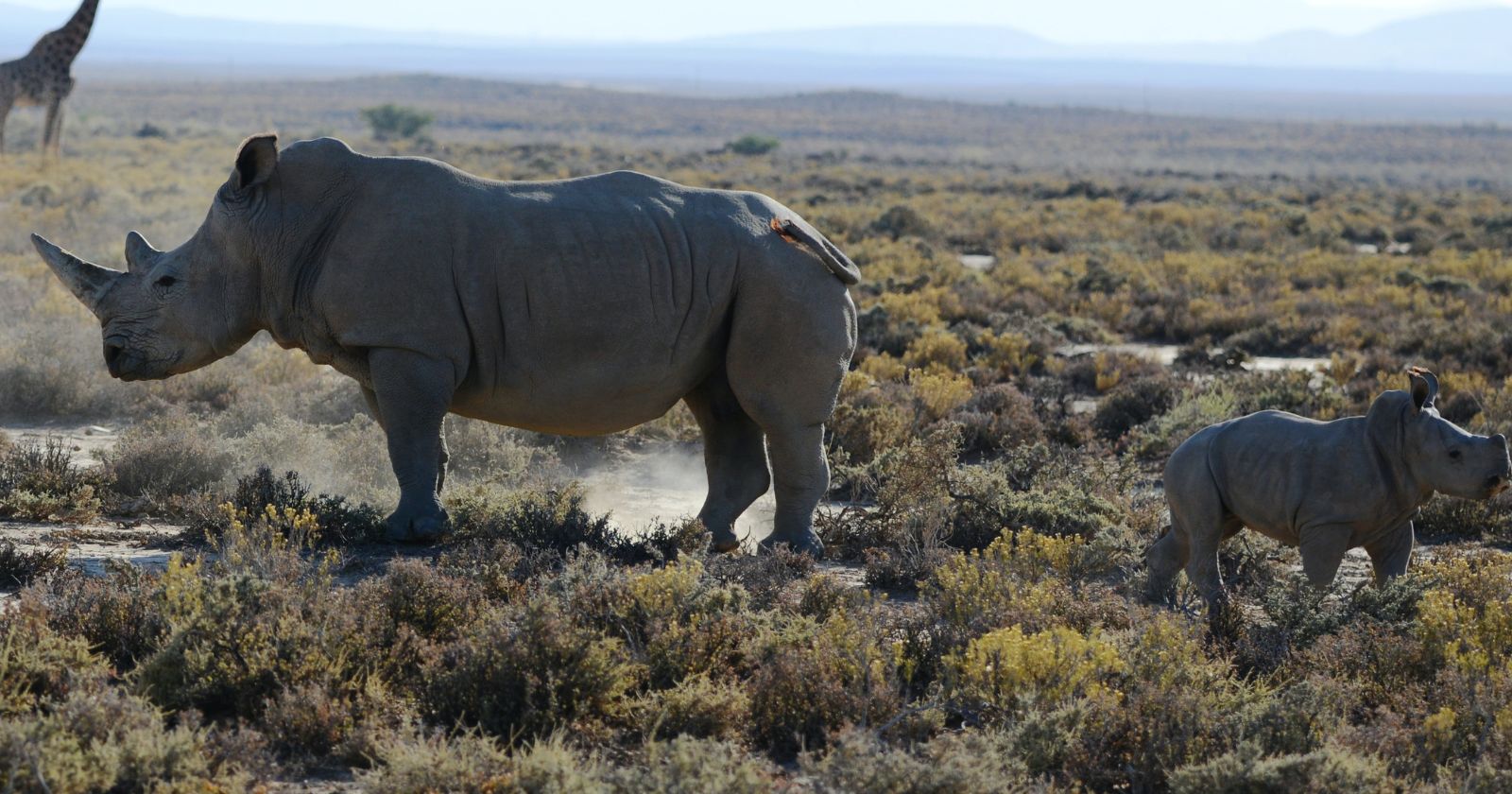
A 33-year-old male South African national was caught with two cardboard boxes of rhinoceros horns while in transit at Changi Airport on his way to Laos on Oct. 4, 2022.
Gumede Sthembiso Joel, 33, was arrested and charged in court with three charges, including two counts of violating the Endangered Species (Import and Export) Act (ESA) by transiting with rhinoceros horns without a valid permit.
He faced a third charge of assisting another to retain "benefits from criminal conduct" under the Corruption, Drug Trafficking and Other Serious Crimes (Confiscation of Benefits) Act.
However, he was acquitted of the third charge after trial as a district judge found that the rhinoceros horns were not proven to be "benefits from criminal conduct".
Acquainted with someone involved in illegal rhinoceros horn trade
According to a judgment made publicly available on Nov. 11, 2023, Joel came to know Jaycee Israel Marvatona, another male South African national, two to three years ago after a mutual friend introduced them.
Joel discovered Marvatona was involved in the illegal rhinoceros horn trade and talked to him about taking on trips with "possible options" to hide rhinoceros-related cargo.
Sometime in or before September 2022, Marvatona asked Joel to transport rhinoceros horns from South Africa to Laos through Singapore.
Joel agreed after Marvatona offered that he would make the trip "worthwhile" and provide return tickets and cash.
Marvatona helped Joel with his flight booking and Laos eVisa and asked him to look for someone to travel with.
Checked-in boxes at South Africa's airport
On the morning of Oct. 3, 2022, Joel and Marvatona met at a restaurant in Johannesburg's O. R. Tambo International Airport, where Marvatona handed Joel the two boxes of rhinoceros horns.
At around 1:29 pm, Marvatona transferred a sum of ZAR 9,000 (approximately S$670) into Joel's company bank account.
After checking in the boxes, Joel boarded a flight to Singapore at 1:55pm.
Officer detected several organic items shaped like horns
After landing in Singapore on the morning of Oct. 4 at 7am, Joel had intended to take a connecting flight from Singapore to Vientiane, Laos, at 9:15 am the same day.
At Changi Airport Terminal 1, an officer in charge of screening X-ray images of transit luggage detected the horns in the two cardboard boxes wrapped in plastic cling wrap.
Subsequently, Joel was escorted to an inspection room, where both boxes were opened in his presence.
A total of 20 pieces of rhinoceros' horns, weighing approximately 34.7kg in total, were discovered to be concealed in two travel bags, one red and one grey, each packed in one of the two boxes.
The two bags were seized, and Joel was arrested.
Horns were from endangered rhino species
National Parks Board's (NParks) experts confirmed the horns were genuine through DNA analysis.
They comprised 18 pieces weighing a total of approximately 31.987kg from white rhinoceros and two pieces weighing a total of approximately 2.713kg from black rhinoceros.
Both species are listed as high risk of extinction under the ESA.
Experts from the Faculty of Veterinary Science, University of Pretoria in South Africa, confirmed that the horns originated from 15 different southern white rhinoceroses and one black rhinoceros.
Additionally, the samples were traced to 11 female rhinoceroses — which meant that the reproduction of such species could have been halted due to possible illegal poaching activities.
Horns were bought from poachers
South African investigations later revealed that Marvatona had bought the rhinoceros horns from poachers in South Africa and sold them to a person known as "Jimmy".
Marvatona then recruited couriers like Joel to smuggle rhinoceros horns to other countries.
South African Police also found baggage tags corresponding to the two boxes in Joel's possession at Marvatona's residence in South Africa.
A representative from the South African government said that Marvatona claimed to the police that Joel was also actively recruiting more couriers to export rhinoceros horns.
Horns did not constitute benefits: Judge
In the judgment, the judge said he disagreed with the prosecution's proposition that the 20 horns were the "benefits" obtained by Marvatona from criminal conduct.
Rather, he stated that the "benefits" would be what Marvatona had obtained from the illegal sale of the horns — whatever was paid by Jimmy to Marvatona.
However, the judge said the prosecution did not submit any evidence of what was Marvatona's exact "benefits" from the sale.
He also noted that "the illegal sale of the horns" did not cause or lead to Marvatona acquiring or obtaining the horns and, therefore, the "clear conclusion is that the horns could not be said to be benefits from Marvatona’s criminal conduct".
Joel is scheduled to plead guilty to two charges of transiting with the rhinoceros horns without a valid permit.
The prosecution filed an appeal against the acquittal.
Top photo from Unsplash
If you like what you read, follow us on Facebook, Instagram, Twitter and Telegram to get the latest updates.


